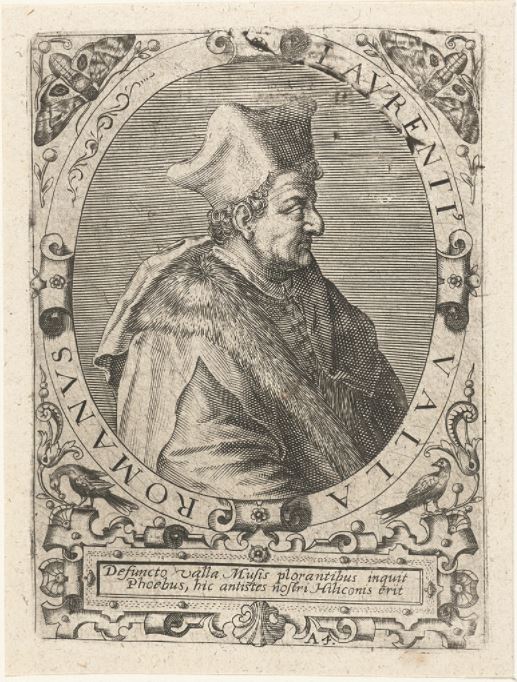Election Fraud? Many Conspiracies Arise from a Rational Foundation

A long time ago there was a guy who donned a tinfoil hat. It was a risky move professionally, but he was an ornery sort who enjoyed rocking the boat every now and again, upending received “wisdom” and then sitting back to watch the fallout.
Sometimes it seemed to his contemporaries that he made outrageous claims simply for the ripples of discontent they produced within his small community, for most of the time they involved trivial matters important only to a tiny coterie of scholars. But on this one particular occasion he launched a claim that had much broader implications. He was certain that an extraordinary fraud had been perpetrated which had gone relatively unquestioned for quite some time — one which, unlike most of his provocative assertions, had real-world consequences.
I say relatively unquestioned because this trouble-maker was not the first person to suspect the fraud had taken place, for others had expressed skepticism over the years. But he was the first person to lay out a coherent justification for these doubts, and in the end, after he had published his opinion, he’d not only exposed the massive conspiracy for the fraud that it was, he’d launched a new academic discipline.
Our conspiracy theorist’s name was Lorenzo Valla and he was born in 1407. His claim was that a certain document the papacy used to justify its temporal powers over the Western portion of Christendom was a forgery. It was allegedly composed in the 4th century by the Emperor Constantine himself, but Valla showed that it actually had to have been forged centuries later.
The document was known as the Donation of Constantine and it appeared to gift the entire Western hemisphere to Pope Sylvester in gratitude for his having cured the emperor of leprosy. The document explicitly stated “. . . we give over . . . to the most blessed pontiff and universal pope, our father Sylvester, and to the power and sway of him and his successor pontiffs, not only our palace . . . but the city of Rome and all the provinces, places, and cities of Italy or the western territories . . . and we grant that they should remain under the law of the holy Roman church.”
Why was this important? At around the same time, a group of forgeries called “The False Decretals” were composed presumably with the intent to boost Rome’s power at a time when it was weakening. The purpose of back-dating these “proofs” of church authority was to reinvigorate it in its contests with secular rulers. And the Donation, included amongst these Decretals, was indeed used throughout the Middle Ages and the early Renaissance to justify the authority of the Church over the state. In addition, it bestowed an impressive amount of material wealth on the papacy in land, palaces, Church sees, and so forth. Further, the papacy’s claims to ownership of this vast territory justified its demands for periodic tribute as well.
Throughout the centuries, whenever Rome flexed its muscles, objections to the Donation would surface here and there but nothing ever came of them. It wasn’t until Valla published his scathing critique “On the Donation of Constantine” — a demolition if there ever was one — that the brightest light was shown on the document confirming it to be the fraud that it was.
Since the Renaissance, what appears to have interested scholars most was Valla’s skillful analysis of the Donation’s language, for it was there that one found the most definitive proof that the document was a forgery. For instance, the writer used expressions that had not yet come into common parlance until well after the 4th century. The document also referred to political functionaries whose role did not yet exist at the time of the alleged composition. Some of the most enjoyable bits are when Valla, being something of a snob where style and rhetoric were concerned, unleashes scathing condemnation of the forger’s clumsy sentence structure and inept syntax. He positively excoriates the forger’s Latin.
But that’s not what interests me about Valla’s critique, for he doesn’t begin his attack with these technical points, and while they’re definitive, there’s something else that demands attention. When I first considered writing an essay on Valla I thought the most important thing was to point out (for the benefit of our college-educated illiterati) that conspiracies to commit fraud aren’t new. If young people received an actual education, this case of a Renaissance humanist exposing a massive fraud concocted centuries earlier would be tucked away somewhere in their minds to be recalled whenever they heard contemptuous dismissals of “conspiracy theorists.” They might even consider the possibility that, as Paul Joseph Watson has pointed out, “. . . conspiracy theories are just inconvenient truths that the political establishment wants to remain hidden.”
But then right before our very eyes this extraordinary election fraud took place, and it was in the reaction of fraud deniers to this epochal event that my attention was forcibly shifted to the specific way in which Valla approached his thesis.
As I said above, he doesn’t begin with specifics; rather, Valla opens his monograph with an examination of the likelihood of this gift having been made (and received) in the first place. In other words, before getting down to the nitty gritty details that prove his thesis, he steps back and lays out the probability of the entire scenario. For instance, he first observes that empire-building monarchs are manifestly aggressive about the acquisition of territory, often to extremes. Consequently, it would be highly unlikely that a figure as ambitious as Constantine would undergo a character reversal so extreme that he’d decide one day to simply give away an empire he’d worked hard to sustain. Then Valla questions how Constantine could possibly have withstood the pleadings and admonishments from his vast family and friends, some of which would have surely included threats, as Valla dramatizes in his imaginings of what those confrontations would have entailed. He spends time on these questions and others, carefully delineating the context in which this gift would have taken place — a context he reveals to be thoroughly illogical. Only then does he move on to specifics by examining the Donation more closely.
Now this is exactly what those individuals who assert election fraud are attempting to do. They pose general questions such as “How likely is it that Joe Biden could have won so overwhelmingly when he couldn’t even rustle up more than a handful of people at his rallies?” or “What is the probability of so many voters voting exclusively for the president and no one else on the ballot?” Those familiar with the issue can offer manifold examples of their own.
It is most important, however, to emphasize that those individuals who ask these questions are engaging rationally with the logic of the context. And the questions surrounding probability (and improbability) are the essential indicators that something might be amiss. Situations that involve a staggering number of improbabilities demand investigation. It is the height of irresponsibility to ignore them and no one can claim any degree of intellectual integrity if they do. Ignoring the illogical and the improbable is tantamount to abdicating reason itself.
My fanciful introduction did Valla a disservice, because it wasn’t a tinfoil hat he put on his head. It was something much less shiny.
It was a thinking cap.
Jocelynn Cordes is an author, essayist and literary critic. Under the pen name Plum McCauley, she has published two novels, It All Started with a Bicycle and Worthy of Prometheus.
Image: Picryl / public domain
*** This article has been archived for your research. The original version from American Thinker can be found here ***


